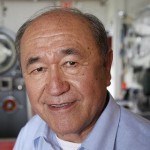“Do people tell you you`re over the hill? … What if you were? Â Over the hill, over a stream and over an ocean. Â To another continent. Â Thousands of miles from your own. Where elders are looked to as leaders …”
If you’re over 50 and have ever been attracted to becoming a Peace Corps volunteer, this advertising message should alert you to the fact that the Peace Corps is recruiting older adults, for their maturity, life and business experience, and transferable skills. Of the approximately 7,800 volunteers around the world, people 50 and older make up 5%, or fewer than 400. Host nations are asking for volunteers who can offer real-world experience in technical fields, business development, agribusiness or teaching, rather than young adults right out of college, says Rosie Mauk, the Peace Corps’ associate director of volunteer recruitment and selection. Applications among older Americans, many of whom have lost jobs in last year’s economic downturn, are on the rise.
2young2retire facilitator and Peace Corps volunteer, Patrice Koerper, who recently returned from an assignment in Macedonia, describes it as the “most amazing, rewarding adventure of my life,† and the Peace Corps itself as the best organization she has ever been associated with. A seasoned public relations professional with a “great job,†Patrice was looking for a change of direction. She had three personal goals for her next endeavor:  first, she wanted “to see the faces of the people I was helpingâ€; second, she wanted to get to know more people; and third, she wanted to live in Eastern Europe from where her family immigrated generations ago. Service with the Peace Corps in Macedonia met all three.
In 2006, while exploring new possibilities for work and life, she took the training to become a certified 2young2retire facilitator. She also found herself drawn to the Peace Corps and decided to apply. After a six-month application process which she found both “laborious and scary,†she felt the Peace Corps knew more about her than anyone. If you’re an older volunteer, you should expect that because there is so much more to know.
Based on an assessment of your skills and experience, the Peace Corps decides what kind of work you will take on.  Once you have accepted an assignment – you are offered up to three locations – you receive language and other training to prepare you for life in your host country. The mission of the Peace Corps is captured in these three goals:
- Helping the people of interested countries in meeting their need for trained men and women.
- Helping promote a better understanding of Americans on the part of the peoples served.
- Helping promote a better understanding of other peoples on the part of Americans.
The Three Goals, plus the commitment to a 27-month duration of service, tend to screen out all but the most serious applicants. Peace Corps volunteer are supplied with a round trip ticket, housing allowance and a stipend to cover food, transportation and incidentals. For Patrice this came to $220 a month, or roughly equivalent to 250 Euros, an average salary in Macedonia.  The point is, volunteers must live like the locals. She received full medical coverage during her service and affordable health insurance for up to 18 months following service.  Older volunteers who draw Social Security and/or other pension benefits, may accumulate significant savings while they are away from home. All returning Peace Corps volunteers are awarded just over $6,000 toward a smooth transition to life back home, and Patrice notes, they are eligible for Response Corps, short-term, high-impact assignments that typically range from three months to a year, at the request of a country.
Eager to begin her new assignment, Patrice arrived in Macedonia and spent the first six months “doing nothing. Patience is the Number One way to survive,†she notes. Macedonia, which became independent from Yugoslavia in 1991, is in the process of reinventing itself and its economy. She was assigned to work with a government agency and eventually found herself doing workshops on change. At first, people tended to view volunteers with suspicion, perhaps because there has been no formal tradition of volunteering. She grew comfortable with the experience of “living minute to minute.” The last seven months of her service in Macedonia proved to be the most fruitful and rewarding.  “I realized I was in the business of building hope and trust,†Patrice says. She kept the motto of Macedonian native, Mother Theresa, in mind: “Do small things with great love.â€
Here are links about the Peace Corps, including recent budgetary debate and how to go about applying:
Recruiting the 50+
Budget Debates, Future Prospects
From Job Loss to Peace Corps
About Peace Corps
Forum for Volunteers
How to Apply


